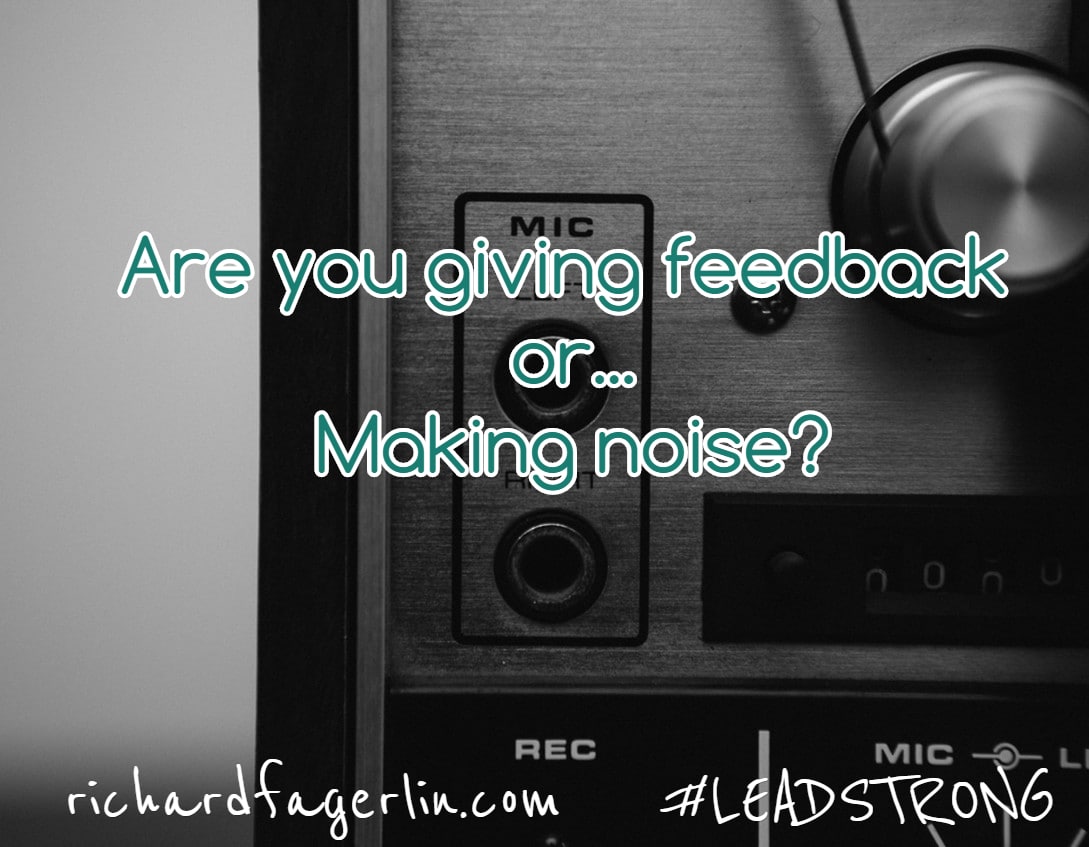Have you ever read the comments on a blog, online newspaper or magazine? How about Facebook? I’ve yet to meet someone that changed their views by the “intellectual debate” that lives in the comment section.
Sometimes loudly, sometimes quietly but always directly people share their thoughts and air their disagreements. I’m not saying we can’t disagree or that there isn’t value in debate and disagreements, there is great value in this. What I am saying is maybe the quote, thought or meme wasn’t written for you. Maybe the person posting or writing wasn’t trying to reach you. Maybe they didn’t want your comments and maybe you shouldn’t have given them your feedback.
The difference between effective feedback and ineffective feedback is easy to distinguish. The purpose of effective feedback is to help someone grow and improve. Everything else is noise and rarely helpful and not often valuable.
Whether it’s on social media, through email or in person people don’t often think about whether their feedback is effective or not.
The last thing we want is people walking on egg shells being worried about what they should say. What I do want is people focused on making their words count and to add value by using them.
The world needs less ideas and more action. Fewer answers and more questions. Less shouting and more listening. Less finger pointing and more engaging. Less telling people what to do and more doing it yourself.
If you are in a meeting, talking with co-workers, sitting at the dinner table or cruising the web, consider the following before sharing your comments and especially your disagreements.
- Are you invited? Have you been asked for your opinion, thought, or idea? Is the expectation for you or others to give input? If not, before you give it, ask if it is welcome.
- Are you adding value to the discussion? Will your feedback be helpful? Does it move the discussion, idea or project towards a better end result? Does it need to be said?
- Do you know what other doors this is going to open? Consider for a moment what may come from your comments. Is this going to open doors and create conversations that are valuable? Hit fast forward on this and determine if it will cause unnecessary issues by sharing what you want to share.
- Is your comment going to reflect the best version of you? Have you ever said something and afterwards regretted it? Be sure that what you are saying (and how you are saying it) is going to be a good reflection on you. Later on, when you are reflecting on your comments will you be proud of the way you represented yourself?
- Do you have the “right” to say this? Do you have knowledge or authority or relationship to say what you want to say? Have you prepared the way for what you are going to say to be heard?
- What would happen if you didn’t say anything? So, what would happen if you didn’t say anything? Would it ultimately be better or worse? Will it lead to the same or better outcome than saying something? Be careful and choose your words well.
Lead Well, Lead Often and LEAD STRONG!
